Hi 👋 Heedong here. Consider this my best attempt at summarizing my story in one page :) I hope this helps you get to know me a little more!

My name – 조희동 (Hee Dong Cho) – means "A bright Odong tree". In Korean tradition, an Odong tree is planted when a daughter is born (I was born a boy, however 😂), and by the time she marries, it is cut and made into furniture for the newlyweds, lasting up to a century without rotting. My name sows in me a grand vision: to make a difference in the lives of people that lasts generations.
Currently 18, there's so much about this world that I need to experience and learn. And though challenges will come as I face the real world, I have faith that God has a good plan ahead of me, and I'm greatly excited for it :)
a void...
My story traces back to grade 10 – just two years ago – when I started questioning why I had to go to school.
I was a decent student throughout grades 7 to 9: on average, I would get 6s and 7s (out of 8) in all of my classes and occasionally 8s in the ones I liked – English being my favorite at that time.
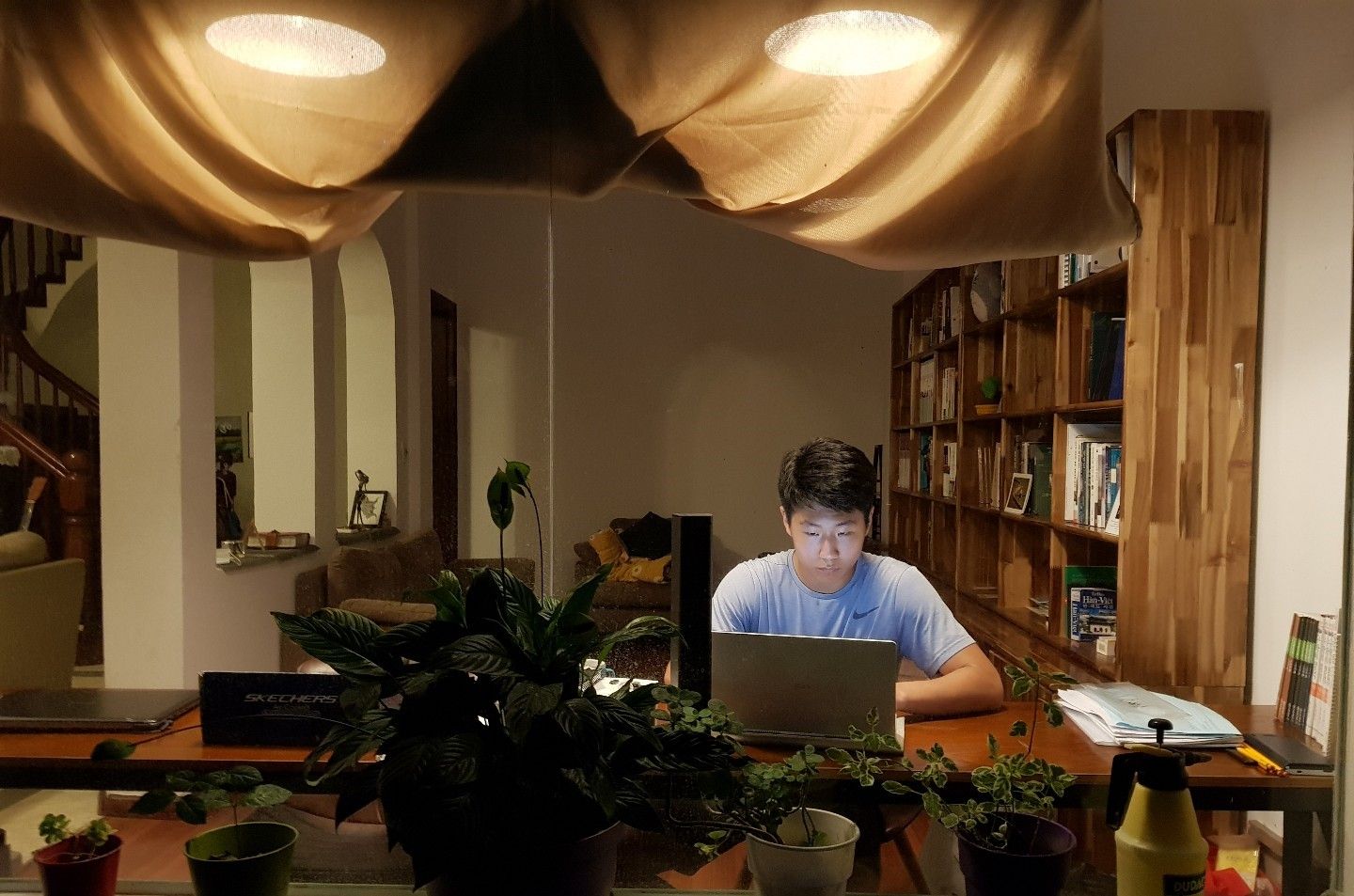
English was the only subject I could confidently say I loved. Writing essays, acting out Romeo and Juliet, listening to slam poetry... they were all things I really enjoyed. Literature to me was a way to understand what it meant to be human, and I found that process deeply fulfilling.
But in grade 10, something changed. I felt a void in me that not even my English classes were able to fulfill. Assignments and extracurricular activities also started to give me a lot of stress as I became aware of (or should I say fed up with) what would and wouldn't appeal to universities. With all of this piled on top of the emptiness I was feeling, what was left of me was only a question of what the hell I was going to do with my life.
This led me to ponder the meaning of life and what I wanted to do after high school. I spent a lot of time coming up with my own answers to these questions during my morning/evening walks with my dog. And while doing so, I watched many YouTube videos related to philosophy, psychology, and self-development trying to grasp what it was that I was really even searching for.
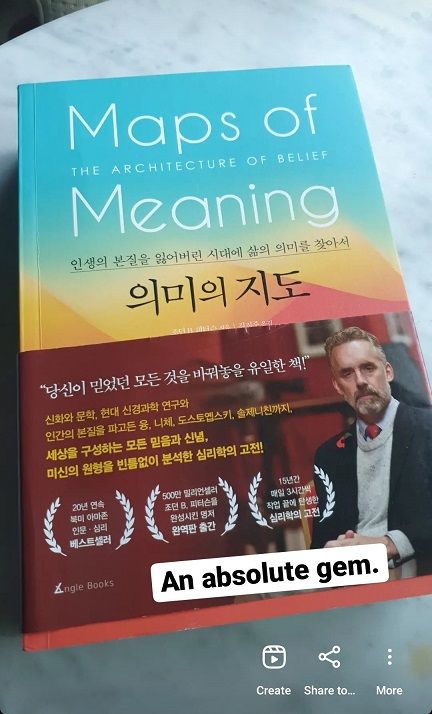
Jordan Peterson's lectures on the Bible and his book Maps of Meaning helped me understand why humans sought meaning and what the ultimate meaning of life could be from a mythological and psychological perspective. And for a period, I was quite seriously learning about the significance of the Christian way of living and how that connected to other philosophical/psychological ideas such as those of Jung, Nietzsche, Maslow, and Rogers'.
Most of my questions about life's purpose and meaning were figured out thanks to JP. But soon, I was frustrated as to why school had never taught any of this to me.
I was starting to question the purpose of education.
i like ≠ school
When I started the IBDP, I hoped I'd be inspired to go to school every day for the next 2 years just to absorb the timeless knowledge and wisdom it would give me (no, like seriously). But unfortunately, that didn't happen (well, maybe a little). What the IB taught failed to stimulate my curiosity most of the time, and from a certain point, I just gave up on my hopes that it would be the kind of education I dreamed of. I thought that if the IB didn't blow my mind as much as JP's lectures did, there was no real reason for me to continue going to school.
I also noticed that in the IBDP, everything about writing became academic. Essays, reports, reading responses... so much to do with analysis and evaluation, not a single look at personal creativity (oh hell to the "command terms"!).
So by the end of the first semester of grade 11, what was initially a void for meaning turned into a void for a purpose to learn. I frequently told my parents,
"My soul's about to evaporate out of me."
That naturally led me to turn to the internet for answers. I remembered being introduced to Minerva by an alum back in grade 6. I knew it was quite an unconventional school and was curious what their take on education was. Later when I discovered their book Building the Intentional University: Minerva and the Future of Higher Education, I had to check it out.
minerva!
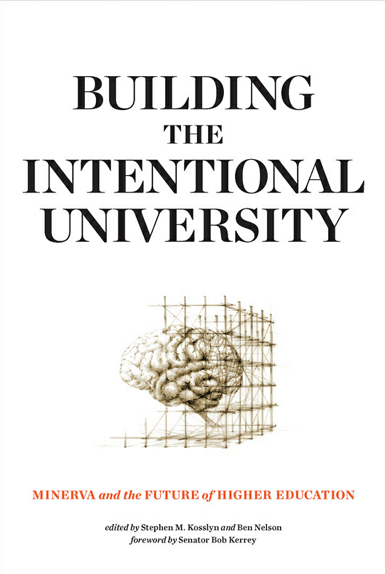
I bought the book online, read it, and was blown away. The founder of Minerva University – Ben Nelson – and those who contributed to the project identified the problems of higher education in the US (which had to do with their cost and lecture-style teaching) and stated that the purpose of universities in the 21st century was to teach "practical knowledge":
"Our aim is not to teach knowledge and skills for their own sake; rather we equip our students with intellectual tools they can use to adapt to a changing world and achieve their goals... We want our students to be able to succeed at jobs that don’t exist yet."
Minerva's curriculum was dedicated to developing the four most sought skills of the 21st century: Critical Thinking, Creative Thinking, Effective Communication, and Effective Interaction.
And they trained students to be able to apply around a hundred sub-skills that branched off from those core competencies, which they called "Habits of Minds and Foundational Concepts (HCs)." Here are a few examples of those HCs: https://www.minerva.edu/public/media/enrollment-center/Minerva-HCs-Intro.pdf.
Named after the Greek god of wisdom with its mission to "[Nurture] Critical Wisdom for the Sake of the World," I knew this was the university for me; I decided I'd apply to no other place than Minerva.
And when the applications for Early Action were open in 2022, I wrote down my best accomplishments and hit "Submit".
😒
On November 30th, Wednesday, at around 11:20 AM, I received an email from Minerva:
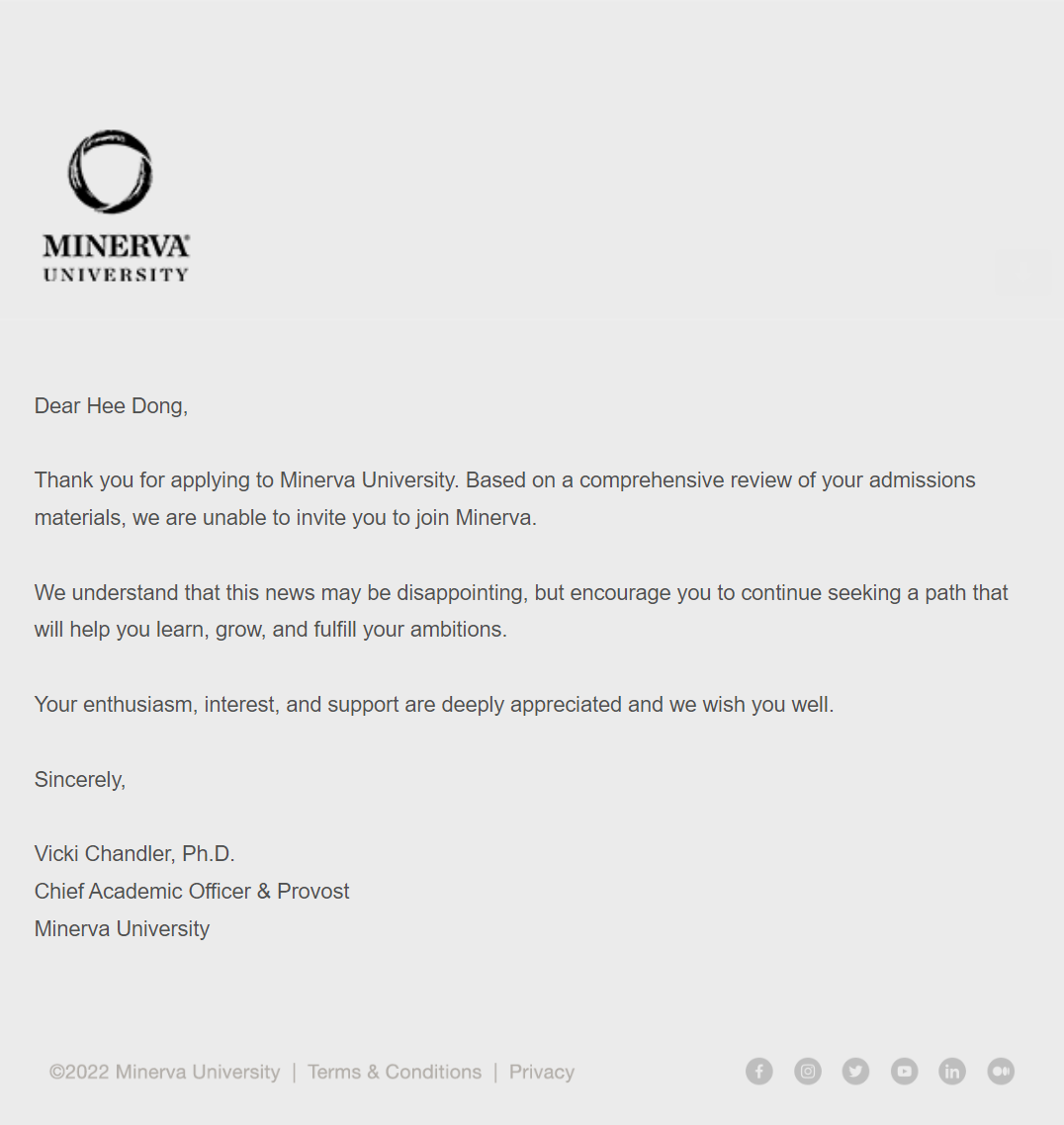
I didn't get in.
I was prepared to accept whatever the result would be, but still, I couldn't understand why things had to turn out this way. Did God not hear my prayers? Was I not desperate enough? I thought my accomplishments aligned so well with Minerva's purpose and values.
Later I heard from a Minerva associate that because I didn't do well in the Challenges section (their own test), my application didn't get to the round of Accomplishments checking. I was shocked at how a simple baseline test like that could have such an impact on my application.
wait, but what is Wisdom?
I imagined myself becoming so much smarter, wiser, and competent after learning Minerva's HCs. In fact, it was actually the HCs that I wanted to take away from Minerva; I didn't care much about the majors they offered.
To cope with the disappointment, I picked up a book called Practical Wisdom: The Right Way to Do the Right Thing. I read it because I wanted to know what wisdom really was and whether it was something I could obtain without Minerva.

The authors refer to Aristotle, who thought of wisdom not as an abstract idea like "the way" or "the truth" for the sages and gurus to discover, but as a practical skill everyone should have, like deciding when to be loyal to a friend, or how to be fair, or how to confront risk, or when and how to be angry. He thought that our fundamental social practices constantly demanded choices and that making the right choices demanded wisdom.
The authors write that practical wisdom depends on "our ability to perceive the situation, to have the appropriate feelings or desires about it, to deliberate about what was appropriate in these circumstances, and to act."
They explain,
"Doctors—and teachers attempting to teach and inspire, or lawyers attempting to provide proper counsel and serve justice—are not puzzling over a choice between the “right” thing and the “wrong” thing. The common quandaries they face are choices among right things that clash, or between better and best, or sometimes between bad and worse."
✨ true wisdom ✨
As a Christian, I try to ground my thoughts, decisions, and actions on the values and principles taught in the Bible. That is because, throughout my search for meaning, the restoration of my relationship with God was what ultimately filled my life with peace and joy.
So God (and therefore Christ) is central to my identity and what I pursue in life. And as I was reading the book, I wondered whether God held me back from going to Minerva for a good reason.
That's because after reading Minerva's rejection letter, this verse came to mind:
"The fear of the Lord is the beginning of wisdom, and knowledge of the Holy One is understanding." – Proverbs 9:10
Though Minerva's HCs are incredibly valuable skills to have, they're not skills I would necessarily call "wisdom". That's because I believe Minerva's aim – "[to] equip students with intellectual tools they can use to adapt to a changing world and achieve their goals" – doesn't include equipping students with the ability to evaluate whether their goals might be the right or wrong goals to pursue in the first place. Those require moral skills, which Minerva as a secular institution can only provide so much of.
I've come to realize that without putting God as the center of my life, there is absolutely no basis on which I can determine whether the important decisions I'm about to make are indeed good or bad, considering both the short and long-term consequences of my actions. This is because the less I look towards a divine being like God for guidance, the more I'm burdened to deal with the conflict of my conscience vs. self-interest; early on I realized that the heart is a very inconsistent judge.
This was addressed by C.S. Lewis in his book Mere Christianity:
"If we ask: ‘Why ought I to be unselfish?’ and you reply ‘Because it is good for society,’ we may then ask, ‘Why should I care what’s good for society except when it happens to pay me personally?’ and then you will have to say, ‘Because you ought to be unselfish’— which simply brings us back to where we started."
That's why I consider this gap year I'm about to take as a chance to develop wisdom by being more attentive to what God may have in plan for me.
a 🛣️ less taken
After being rejected by Minerva, I was determined to teach myself the skills that would make me successful in many aspects of my life.
Through books like The Education of Millionaires by Michael Ellsberg, The Case Against Education by Bryan Caplan, and Hacking Your Education by Dale J. Stephen, I got to learn about what it takes for an individual to succeed without the "signaling" of a college degree.
Accompanying this was my growing interest in entrepreneurship, which I read a lot on too, including The Personal MBA by Josh Kaufman, The Entrepreneur Revolution by Daniel Priestley, and The Minimalist Entrepreneur by Sahil Lavingia.
Since grade 8, it was natural for me to teach myself how to program something whether it was from a YouTube video or just an idea I wanted to test out. I was lucky that I had a passion for programming because the opportunities coming out of software development were only going to grow exponentially in the future. There is so much value to be created through tech, and what's better is that the sheer amount of information becoming available online and through books makes it easier for anyone to enter the industry.
Some examples of my projects are a remote-controlled Arduino drone, a finger-controlled volume controller using OpenCV, a VR volleyball game using Unity3D, an AR app prototype made with Vuforia, a JavaScript program that re-draws (using epicycles) any continuous drawing drawn on a screen, and a map-based mobile app that I'm currently building using Flutter.
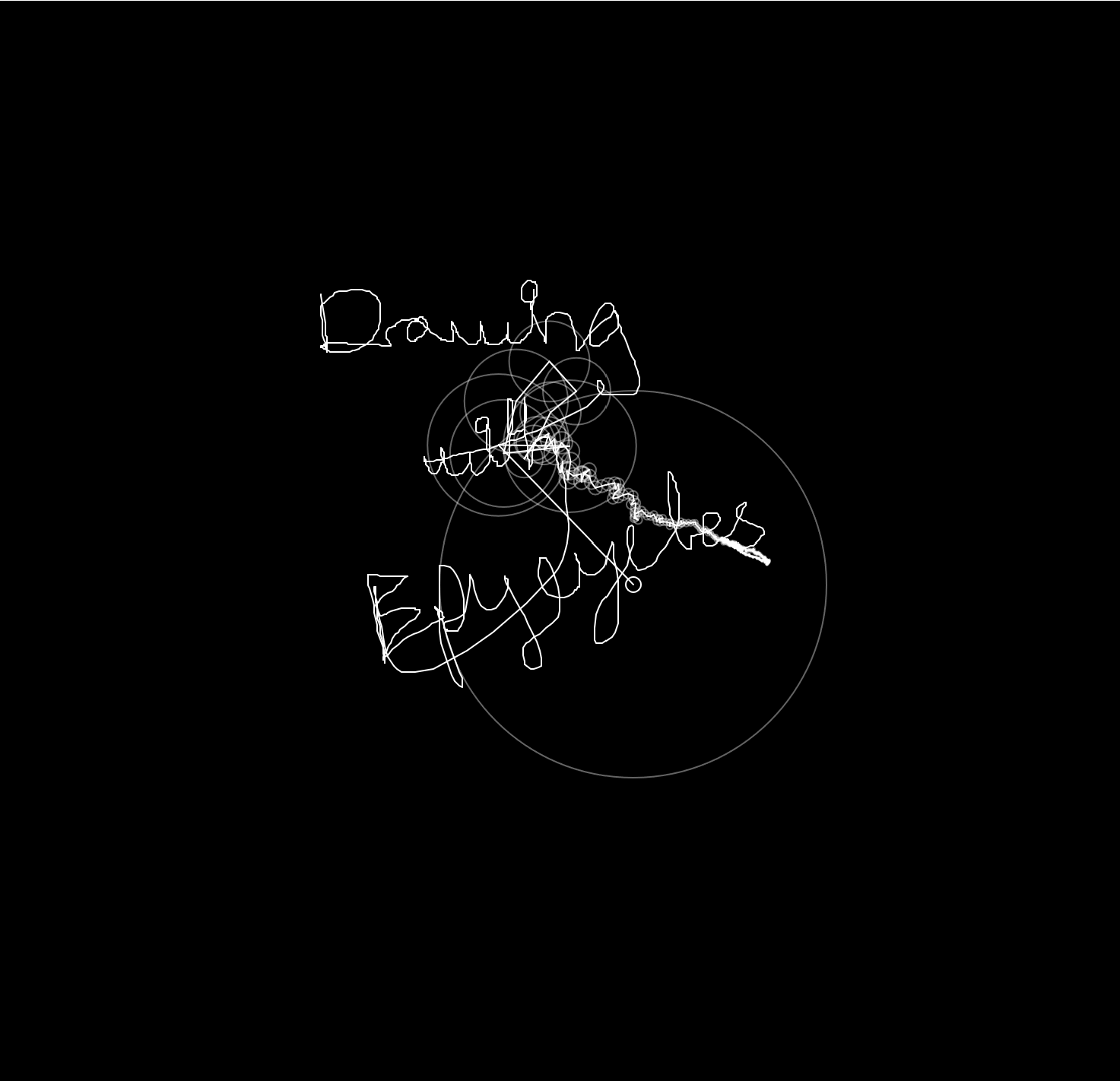
And through all of this, I've come to realize that with the right sources of information and a supportive community, I could learn anything on my own. If the resources available to me (mostly via online) weren't enough, I could leverage the power of networking to find mentors who could help me to grow.
So during my gap year, I'm planning to put everything I've learned so far into practice, and use this website as a place to document my journey. My blogs will be mostly about faith, self-education, emerging technologies, and entrepreneurship, but occasionally I will also include updates as to where I'm at in life and some reflection/opinion pieces as well.
In the long run, I want to create a startup that helps enriches people's lives through meaningful social experiences (since many social media companies have failed to do so) and create or contribute to a nonprofit that helps individuals from disadvantaged backgrounds find purpose and develop their skills for the betterment of the world.
And I hope that my story will inspire someone to explore their own "road [less] taken", pursuing what they believe is true and dearest to them.
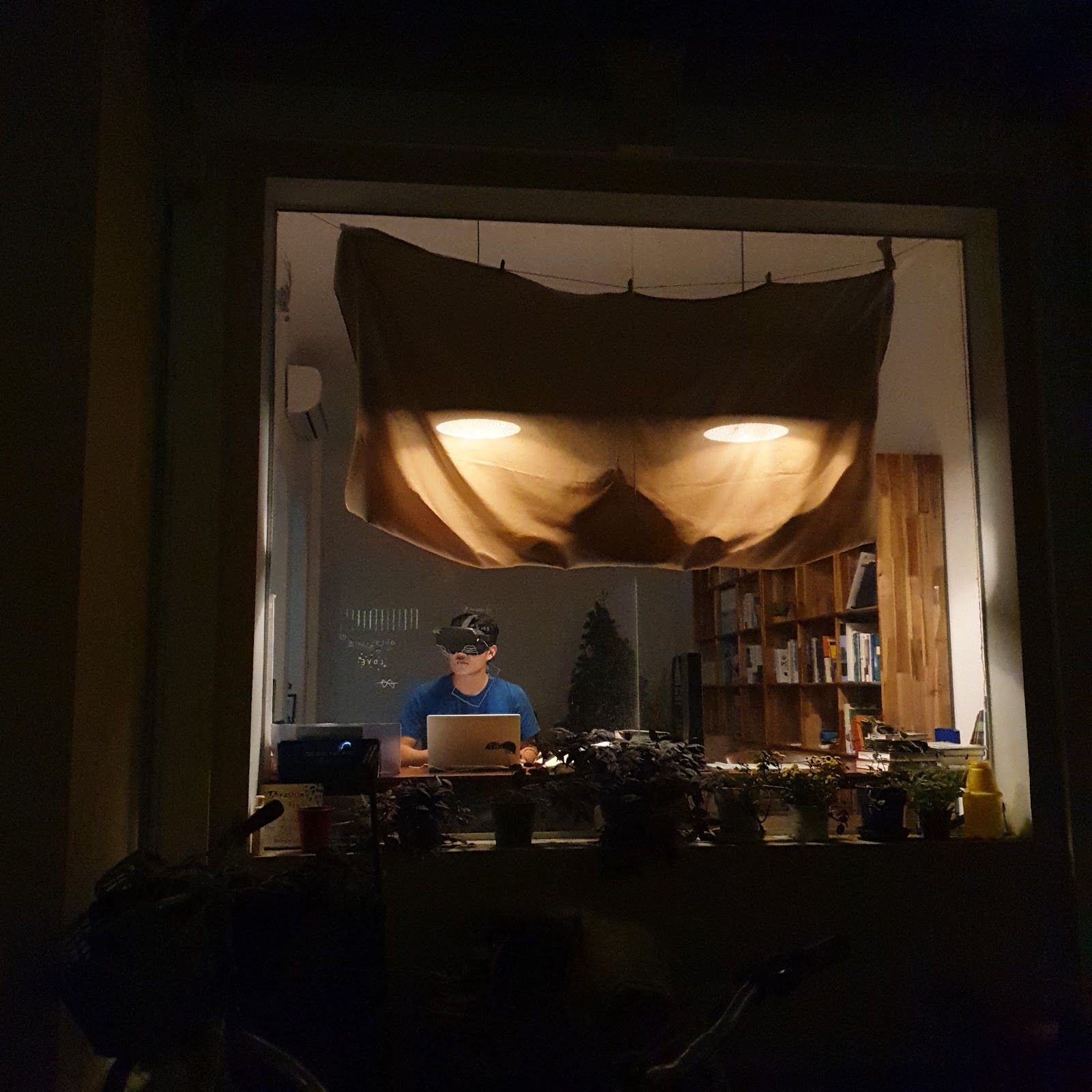
That was my story captured in one page :) and I'm super excited about what's to come!
If any of this resonated with you or you have your own story that you'd like to share with me, please free to contact me at heedongcho.xyz@gmail.com. Otherwise, you can stay posted by subscribing to my newsletter.
I'll catch you later ✌️!